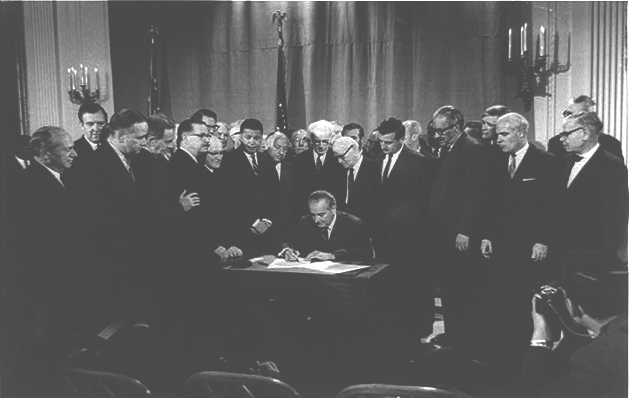The actions are an extension of an order that was originally enacted under the Trump administration in March of last year. President Joe Biden — as one of 17 orders he signed on his first day in office — initially extended the eviction and foreclosure moratoriums through the end of March.
National Fair Housing Alliance Applauds Confirmation of Vanita Gupta as United States Associate Attorney General
- At April 21, 2021
- By fhfla
- In News
 0
0
Washington, D.C. — Today, Lisa Rice, President and CEO of the National Fair Housing Alliance (NFHA), issued the following statement on the Senate’s confirmation of Vanita Gupta to serve as Associate Attorney General of the United States:
“This is a tremendous day for civil rights. Now confirmed by the Senate, Vanita Gupta will be the first civil rights lawyer and first woman of color ever to serve as Associate Attorney General. NFHA is looking forward to working closely with Associate Attorney General Gupta as she steps into the leadership of an agency that plays a crucial role in enforcing our nation’s civil rights laws.
“Associate Attorney General Gupta has spent her career fighting for equality and advancing the civil rights of many communities. Her record as a civil rights leader and attorney is incredibly strong and she has gone above and beyond to protect fair housing and lending rights so that everyone has a chance to succeed, no matter where they live or what they look like.
“At a time of rampant anti-voter legislation, increased hate crimes, and other attacks on our rights and our democracy, it is critical that we have a dedicated civil rights lawyer who has consistently advanced the cause of justice serving in one of the top positions at the Department of Justice. We look forward to working with Associate Attorney General Gupta and the Biden-Harris Administration to ensure a more equitable society and equal housing opportunity for all people.”
NFHA Issues Statement on the Passing of Walter Mondale
- At April 20, 2021
- By fhfla
- In News
 0
0

Marcia Fudge Sworn in As Secretary of Housing and Urban Development
- At March 22, 2021
- By fhfla
- In News
 0
0
WASHINGTON DC – Marcia L. Fudge has been officially sworn in as the eighteenth Secretary of Housing and Urban Development. Click on below.
Secretary Fudge took the oath this evening after the Senate voted to confirm her. As Secretary of Housing and Urban Development, Fudge now leads a federal department with wide reach throughout the United States, including the Offices of Housing, Community Planning and Development, Federal Housing Administration, Public and Indian Housing, Fair Housing and Equal Opportunity, Policy Development and Research, Field Policy and Management, Government National Mortgage Association (Ginnie Mae), Lead Hazard Control and Healthy Homes, and Faith-Based and Neighborhood Partnerships.
A good home shapes nearly every part of our lives. It’s where we start and end each day. It’s where we raise our families and come together in times of joy. It’s where we find shelter and comfort during times of hardship.
The past year has reminded us just how important it is to have a safe and stable place to call home. But, right now-for millions of Americans-that sense of security and peace of mind is out of reach.
Our country has an immense responsibility-and profound opportunity-to address the housing crisis facing so many people.
To provide relief for those struggling to pay their rent or mortgage as a result of the pandemic.
To ensure every American experiencing homelessness has a roof over their head.
To revitalize our communities-and help more Americans achieve their dream of homeownership.
To break down the barriers of injustice that still limit the futures of far too many young people.
Every community faces unique challenges that require its own unique solutions.
We all want and deserve the same basic things: a safe place to live and an opportunity to succeed with dignity, with grace, and with hope.
I’m Marcia Fudge-and I’m honored to serve as the 18th Secretary of Housing and Urban Development.
I am proud to join a group of public servants who work with compassion and determination to change the lives of those in need. And I can’t wait to get started.
Biden extends foreclosure moratorium and mortgage forbearance through June
- At February 16, 2021
- By fhfla
- In News
 0
0
The Biden administration announced Tuesday that it would extend the foreclosure moratorium and mortgage forbearance through the end of June.
The actions would block home foreclosures and offer delayed mortgage payments until July, as well as offer six months of additional mortgage forbearance for those who enroll on or before June 30.
The departments of Housing and Urban Development, Veterans Affairs and Agriculture will work together to enact the actions, according to the announcement from the White House. Resources for homeowners will be consolidated on the Consumer Financial Protection Bureau’s website.
The White House announcement also pushed for quick passage of Biden’s $1.9 trillion Covid-19 relief package, arguing the bill would provide states with $10 billion to assist homeowners with mortgage and utility costs. The Biden administration said Tuesday that 2.7 million homeowners are enrolled in the Covid-19 mortgage forbearance program, which remains available to an additional 11 million government-backed mortgages.
FILED UNDER: WHITE HOUSE, MORTGAGES, DEPARTMENTOF VETERAN AFFAIARS




